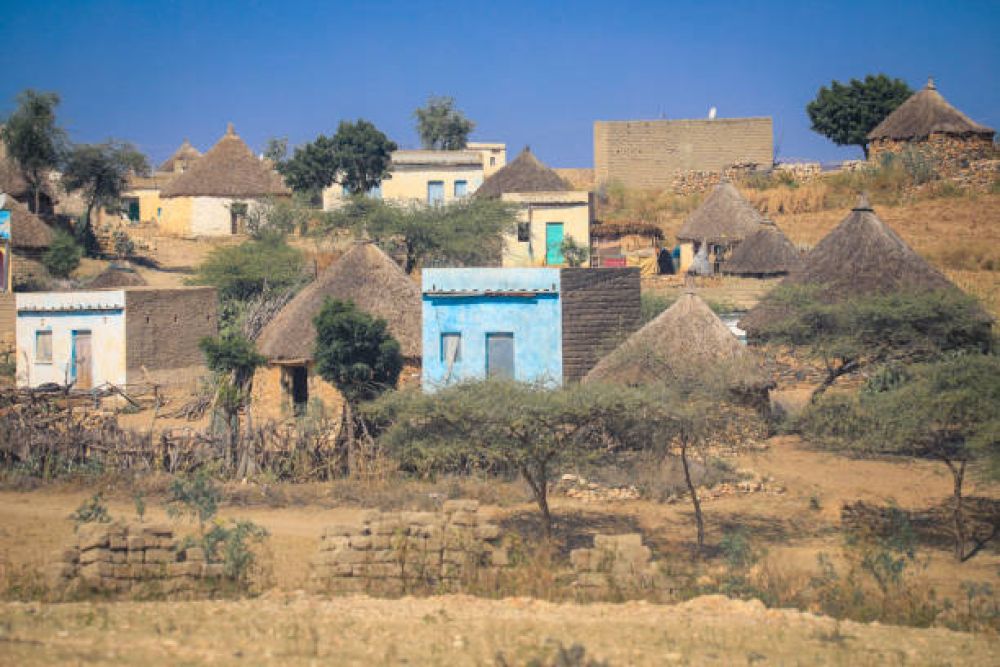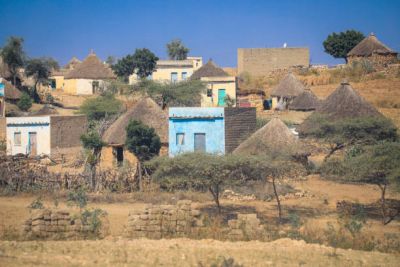

Ermera is known for its excellent coffee, and a visit to a traditional coffee plantation is a must-do activity. A guided tour of a local plantation allows you to learn about the history of coffee production in Timor-Leste, which dates back to colonial times. You'll see the entire coffee-making process from plant to cup, as farmers pick, dry, and roast the beans. Timorese coffee is unique due to its organic growing methods and the use of the Timor Hybrid bean, known for its rich and smooth flavor. The highlands of Ermera provide ideal conditions for coffee cultivation, and the tour gives insights into the lives of the local farmers and their communities. You may even have the chance to participate in some of the coffee-making processes depending on the season.
Tais cloth is an important cultural artifact in Timor-Leste, traditionally woven by women and used in everything from ceremonial dress to home decor. In Ermera, you can take part in a workshop led by local artisans to learn the intricate process of Tais weaving. These workshops not only offer a hands-on experience but also provide insights into the importance of Tais in Timorese society, including its role in the struggle for independence and as a symbol of cultural identity. By participating, you support the local economy and the preservation of this traditional art form. The workshops are typically held in a village setting, offering a genuine perspective on daily life and the deep-rooted customs of the region.
For an immersive experience into Timorese village life, consider a homestay with a local family in Ermera. Staying in a traditional home allows you to participate in daily activities such as cooking, farming, and socializing with the locals. You'll get to enjoy meals prepared with fresh, locally-sourced ingredients, often accompanied by stories or music. A homestay is a unique opportunity to understand the challenges and joys of life in Ermera, particularly the sense of community and the importance of family ties. The accommodation might be modest compared to standard hotels, but it offers a richness and authenticity that is unparalleled. Engaging with your host family will deepen your appreciation for the local customs and provide lasting memories of your visit to Timor-Leste.
Timorese cuisine is a reflection of its history, with influences from Portuguese, Indonesian, and indigenous culinary traditions. In Ermera, a cooking class can provide you with the opportunity to learn how to prepare traditional dishes using local ingredients like corn, cassava, and tropical fruits. Classes are often hosted by village locals who are eager to share their knowledge and passion for Timorese food. You might learn to make dishes like 'Batar Da'an' (corn and mung bean stew) or 'Ikan Pepes' (spiced fish wrapped in banana leaves). The hands-on experience not only teaches cooking techniques but also fosters a deeper understanding of the region's agricultural practices and dietary customs.
The rugged terrain of Ermera offers splendid opportunities for mountain hiking and birdwatching. Guided treks can take you through lush forest trails and to peaks with panoramic views of the surrounding countryside. Ermera's altitude and climate create a habitat for a variety of bird species, which makes it a great place for ornithologists and nature enthusiasts. Along the hikes, you may spot the Timor Green Pigeon, the Black-Capped Kingfisher, or even the endangered Yellow-crested Cockatoo. The duration of hikes can vary, and they can be tailored to your fitness level and interests. Moreover, taking a trek led by a local guide provides invaluable support for the community and helps you learn about the local ecology and conservation efforts.
Music and dance play integral roles in the celebrations and rituals of Timorese culture. In Ermera, you can attend a performance of traditional dance and music, often held in village meeting places or during festivals. These performances are vibrant and colorful, showcasing stories and themes important to the local community. Dancers wear costumes made of Tais cloth, and musicians play instruments like the 'likurai' (a type of drum), 'babadok' (bamboo flute), and other handmade instruments. Attending such a performance allows you to witness the living traditions of Timor-Leste and offers a chance to interact with performers after the show. These cultural experiences often leave visitors with a profound respect for the enduring spirit and artistic expression of the Timorese people.
A visit to a local market in Ermera is a vibrant and lively way to experience the everyday life of the Timorese people. Markets are bustling with activity, as villagers sell fresh produce, handcrafted items, and traditional Tais textiles. Wandering through the market, you'll be greeted with the sights, smells, and sounds of the local trade. It's an excellent place to sample local foods, purchase souvenirs, and practice your Tetum or Portuguese language skills with friendly vendors. The market provides a glimpse into the agricultural abundance of the area and the craftsmanship of local artisans. It's also an opportunity to contribute to the local economy, ensuring that your visit has a positive impact on the community.
If your visit coincides with a local festival or ceremony, participating in the event can be one of the most memorable experiences in Ermera. Traditional ceremonies in Timor-Leste can range from marriage celebrations and house blessings to harvest festivals and Independence Day events. These ceremonies are often marked by ritualistic dances, music, and the sharing of food. By joining a ceremony, you not only get to see the rituals but also participate in communal activities, which fosters a unique bond between visitors and hosts. The willingness to engage respectfully with local customs will open doors to genuine interaction and understanding. Participation in such events usually requires an invitation or the accompaniment of a local guide who can facilitate access and provide context to the traditions you are witnessing.
Agroforestry is a sustainable land-use system that is vital to environmental health and local livelihoods in Ermera. A tour of agroforestry and sustainable farming operations provides insight into how communities integrate trees with crops and livestock to create more diverse, productive, and sustainable land-use systems. You'll learn about the practices that support soil health, enhance biodiversity, and increase yields while reducing the need for chemical inputs. These tours are educational and demonstrate how farming communities in Ermera are adapting to challenges like climate change and deforestation. By taking a tour, you support these efforts and can gain a deeper understanding of how traditional knowledge and modern techniques are being combined to ensure a sustainable future for Timor-Leste.
For those interested in education and community development, visiting a local school in Ermera can be a fulfilling activity. This type of visit allows you to interact with students and teachers, providing a firsthand look at the educational system in rural Timor-Leste. You may have the opportunity to sit in on a class or participate in an educational exchange, sharing knowledge and experiences from your own culture. Such visits not only foster cross-cultural understanding but can also inspire students by exposing them to different perspectives. Often, visitors are encouraged to bring along books or educational materials as a gesture of goodwill. A school visit is a chance to make a small but meaningful contribution to the community while gaining insights into the aspirations and challenges faced by young Timorese.
